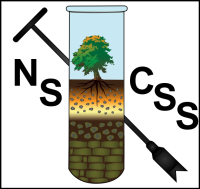Integration with the Soil Science Society of America
As of August 2011, the NSCSS is a fully integrated part of the Soil Science Society of America. At the May 21–24, 2011 NSCSS Annual Meeting in Asheville, North Carolina, it was recommended that NSCSS integrate into SSSA to unite and expand the soil science community and form a new Consulting Soil Scientists Division within SSSA. These discussions led to the proposal that was presented to the NSCSS Board of Directors that NSCSS integrate into SSSA and form the new Division with SSSA. After further NSCSS/SSSA discussions regarding the merger, on July 21, 2011, the Board of Directors of the SSSA unanimously voted to create a new Division - S12, for Consulting Soil Scientists (CSS). On July 29, 2011, the NSCSS Board of Directors voted to recommend to the membership that we integrate our corporation and programs into SSSA. In August, NSCSS members were given the opportunity to approve the merger by voting - the results were overwhelmingly (95%) in favor of integrating NSCSS into SSSA." [3]
They cited being included under SSSA's corporate umbrella (alleviating financial and administrative demands) and the communications network of the SSSA's Science Policy Office in Washington D.C. as major advantages leading to the choice to integrate.

A board of directors is an executive committee that jointly supervises the activities of an organization, which can be either a for-profit or a nonprofit organization such as a business, nonprofit organization, or a government agency.

The American Psychological Association (APA) is the largest scientific and professional organization of psychologists in the United States, with over 146,000 members, including scientists, educators, clinicians, consultants, and students. It has 54 divisions—interest groups for different subspecialties of psychology or topical areas. The APA has an annual budget of around $125 million.
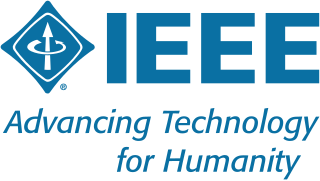
The Institute of Electrical and Electronics Engineers (IEEE) is a 501(c)(3) professional association for electronics engineering, electrical engineering, and other related disciplines with its corporate office in New York City and its operations center in Piscataway, New Jersey. The IEEE was formed from the amalgamation of the American Institute of Electrical Engineers and the Institute of Radio Engineers in 1963.

The Society of Actuaries (SOA) is a global professional organization for actuaries. It was founded in 1949 as the merger of two major actuarial organizations in the United States: the Actuarial Society of America and the American Institute of Actuaries. It is a full member organization of the International Actuarial Association.

The Casualty Actuarial Society (CAS) is a professional society of actuaries in North America specializing in property and casualty insurance.
The Institute of Physics (IOP) is a UK-based learned society and professional body that works to advance physics education, research and application.

The Medical Library Association (MLA) is a nonprofit educational organization with more than 3,400 health sciences information professional members.
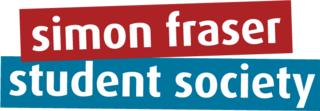
The Simon Fraser Student Society (SFSS) is the students' union of Simon Fraser University in Metro Vancouver, Canada. It was founded after the opening of Simon Fraser University in 1967.

The International Society of Automation (ISA), formerly known as The Instrumentation, Systems, and Automation Society, is a non-profit technical society for engineers, technicians, businesspeople, educators and students, who work, study or are interested in automation and pursuits related to it, such as instrumentation. It was originally known as the Instrument Society of America. The society is more commonly known by its acronym, ISA, and the society's scope now includes many technical and engineering disciplines. ISA is one of the foremost professional organizations in the world for setting standards and educating industry professionals in automation. Instrumentation and automation are some of the key technologies involved in nearly all industrialized manufacturing. Modern industrial manufacturing is a complex interaction of numerous systems. Instrumentation provides regulation for these complex systems using many different measurement and control devices. Automation provides the programmable devices that permit greater flexibility in the operation of these complex manufacturing systems.

The Ecological Society of America (ESA) is a professional organization of ecological scientists. Based in the United States and founded in 1915, ESA publications include peer-reviewed journals, newsletters, fact sheets, and teaching resources. It holds an annual meeting at different locations in the USA and Canada. In addition to its publications and annual meeting, ESA is engaged in public policy, science, education and diversity issues.
The Special Libraries Association (SLA) is an international professional association for library and information professionals working in business, government, law, finance, non-profit, and academic organizations and institutions.
The American Institute of Chemical Engineers (AIChE) is a professional organization for chemical engineers. AIChE was established in 1908 to distinguish chemical engineers as professionals independent of chemists and mechanical engineers.

The Soil Science Society of America (SSSA), is the largest soil-specific society in the United States. It was formed in 1936 from the merger of the Soils Section of the American Society of Agronomy and the American Soil Survey Association. The Soils Section of ASA became the official Americas section of the International Union of Soil Sciences in 1934, a notable role which SSSA continues to fulfill.
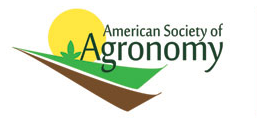
The American Society of Agronomy (ASA) is a scientific and professional society of agronomists and scientists of related disciplines, principally in the United States but with many non-U.S. members as well.
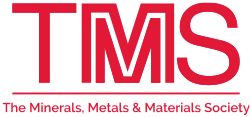
The Minerals, Metals & Materials Society (TMS) is a professional organization for materials scientists and engineers that encompasses the entire range of materials and engineering, from minerals processing and primary metals production to basic research and the advanced applications of materials.
The Baptist General Association of Virginia (BGAV), founded in 1823, is an umbrella organization of Baptist churches in Virginia. It is affiliated with the Southern Baptist Convention and the Baptist World Alliance.
The Association of Environmental & Engineering Geologists (AEG), is the principal American association of professionals in the fields of geotechnical engineering, engineering geology, soils engineering, hydrological engineering, and environmental geology. The association also includes geologists, civil engineers, structural engineers, ecologists, petroleum engineers and others in fields relating to engineering geology and its effects on the environment.

Phi Upsilon Omicron (ΦΥΟ), sometimes called Phi U, is a scholastic honor society that recognizes academic achievement among students in the field of family and consumer science.
